Face Procedures
Neck Lift
Also known as platysmaplasty or cervicoplasty
The neck is one of the first places where we show our age. Fatty jowls, a “turkey wattle,” vertical banding and horizontal creases all work together to make us look older than we feel. A neck lift enhances the appearance of the neck by tightening the skin and underlying muscles and improving the contour of the jawline. This procedure is often performed in conjunction with liposuction, a facelift, or a cheek lift but may also be done as a stand-alone procedure.
When to Consider a Neck Lift
- If you have a turkey wattle that makes you look much older than your age
- If you feel your neck is too fat
- If you have lost the distinct jawline of your youth and want to restore it
- If you have excess skin and wrinkles on your neck
Considerations
Pros
- Can significantly improve your neck and jawline
- Can be done as a stand-alone procedure if other facial surgery is not needed or desired
- Can provide you with a more youthful profile
Cons
- Your neck may feel tight for months after surgery
- Possible fluid accumulation or bleeding after surgery
- May make your other facial aging more noticeable if only the neck has been treated
These are the top three pros and cons to weigh when considering a neck lift. If you want to focus on what is unique to you, please consult with your aesthetic plastic surgeon.
Are you a good candidate for a neck lift?
The following are some common reasons why you may want to consider neck lift:
- You desire a sleeker neck with a distinct jawline that separates your neck from your face
- You have excess skin and fat in your neck
- Your neck has developed folds and lines
If you are in good general health, have a positive attitude and realistic expectations, you are most likely a good candidate for this procedure.
A neck lift raises and tightens sagging tissues and loose skin.
Detailed Procedural Info
How is a neck lift procedure performed?
If only minimal contouring is needed, this procedure can be done with liposuction alone.
The procedure for a full neck lift is as follows:
- Incisions are made under the chin and/or behind the ears depending on the procedure that has been chosen
- The platysma muscle is tightened and sewn together (corset platysmaplasty) similar to the way shoelaces are cinched.
- Excess skin and fat are carefully trimmed away
- Tissue and skin are repositioned and secured with sutures
- Incisions are closed, and drains may be placed before the wounds are bandaged
What are my options?
As a stand-alone procedure, your neck lift can be done with liposuction alone, if only fat is being removed and your skin quality is good. When there are more significant signs of aging, such as a turkey wattle, jowling, excess fat, sagging skin, and a prominent platysma muscle, a more extensive procedure is required that will address all of those problem areas.
What will my neck lift incisions and scars be like?
There are various incision approaches, depending on the extent of the surgery and the structures being altered. If a corset platysmaplasty is planned (in which the platysma muscles are tightly sewn together to create a smooth neck contour) a small incision is made under your chin (submental incision) along with a limited facelift-type incision behind each ear. For younger patients who request a neck lift with minimal change to the face, the neck correction can sometimes be accomplished with only the submental incision or with only the incision behind each ear.
Selecting a Surgeon
It’s important to choose your surgeon based on:
- Education, training, and certification
- Experience with neck lift surgery
- Your comfort level with him or her
After finding a board-certified plastic surgeon in your area who is experienced in performing neck lift surgery, you will need to make an office appointment to set up your consultation. Generally, because of the in-depth nature of the consultation, there is a cost associated with the initial visit.
Your initial consultation appointment
During your initial consultation, you will have the opportunity to discuss your cosmetic goals. Your surgeon will evaluate you as a neck-lift candidate and clarify what a neck lift can do for you. Understanding your goals and medical condition, both alternative and additional treatments may be considered.
You should come to the consultation prepared to discuss your complete medical history. This will include information about:
- Previous surgeries
- Past and present medical conditions
- Allergies and current medications
Your treatment plan
Based on your goals, physical characteristics, and the surgeon’s training and experience, your surgeon will share recommendations and information with you, including:
- An approach to your surgery, including the type of procedure or combination of procedures
- The outcomes that you can anticipate
- Your financial investment for the procedure
- Associated risks and complications
- Options for anesthesia and surgery location
- What you need to prepare for your surgery
- What you can expect to experience after surgery
- Show before-and-after photos of cases similar to yours and answer any questions
Questions to ask your aesthetic plastic surgeon
For a general list of questions to ask your surgeon about his or her background, to find out about plastic surgery safety, and to plan your procedure
We developed these questions to help you:
- Make the most informed and intelligent decisions about your procedure
- Confirm that you have the right surgeon for your procedure
- Make your initial consultation as rewarding as possible
- Understand your options, potential outcomes, and risks
It is important for you to take an active role in your surgery, so please use this list of questions as a starting point for your initial consultation.
- Am I a good candidate for a neck lift?
- Are the results I am seeking reasonable and realistic?
- Do you have before-and-after photos I can look at for the procedure I am undergoing?
- Will my scars be visible? Where will my scars be located?
- What kind of anesthesia do you recommend for me?
- What will be the costs associated with my surgery?
- What will you expect of me to get the best results?
- What kind of recovery period can I expect, and when can I resume normal activities?
- What are the risks and complications associated with my procedure?
- How are complications handled?
- What are my options if the cosmetic outcome of my surgery does not meet the goals we agreed on?
Preparing for Your Procedure
Your surgeon will provide thorough preoperative instructions, answer any questions you may have, take a detailed medical history, and perform a physical exam to determine your fitness for surgery.
In advance of your procedure, your surgeon will ask you to:
- Stop smoking at least six weeks before undergoing surgery to promote better healing
- Avoid taking aspirin, certain anti-inflammatory drugs, and some herbal medications that can cause increased bleeding
- Regardless of the type of surgery to be performed, hydration is very important before and after surgery for safe recovery.
Neck lift may be performed on an outpatient basis, particularly if only liposuction is performed. However, if more extensive surgery is planned, you will likely have an overnight stay in the hospital so that you can be monitored for possible problems. Be sure to arrange for someone to drive you home when you are released from the surgical facility and to stay with you at least the first night release from the hospital.
What can I expect on the day of neck lift surgery?
Your neck lift surgery may be performed in an accredited hospital, free-standing ambulatory facility, or office-based surgical suite. Neck lift procedures can range from one hour to three hours or longer, depending on the complexity of the procedure and whether the platysma muscle is manipulated.
- Medications are administered for your comfort during the surgical procedure.
- General anesthesia is commonly during your neck lift, although local anesthesia or intravenous sedation may be desirable in some instances.
- For your safety during the surgery, various monitors will be used to check your heart, blood pressure, pulse, and the amount of oxygen circulating in your blood.
- Your surgeon will follow the surgical plan discussed with you before surgery.
- After your procedure is completed, you will be taken into a recovery area where you will continue to be closely monitored. You will have drainage tubes in place.
You may be required to stay overnight for observation unless you and your plastic surgeon have made other plans for your immediate postoperative recovery.
Aftercare and Recovery
Your surgeon will discuss how long it will be before you can return to your normal level of activity and work. After surgery, you and your caregiver will receive detailed instructions about your postsurgical care, including information about:
- Drains, if they have been placed
- Normal symptoms you will experience
- Potential signs of complications
How will I look and feel immediately following neck lift?
Immediately after surgery, your neck will be bruised and it will feel tight and numb. The bruising will resolve over the next four to five days but the feelings of tightness and numbness may remain for several months, if not longer.
Recovery time frame after neck lift
It is vitally important that you follow all patient care instructions provided by your surgeon. This will include information about care of your drains and type of activity that is safe. Your surgeon will also provide detailed instructions about the normal symptoms you will experience and any potential signs of complications. It is important to realize that the amount of time it takes for recovery varies greatly among individuals.
How Long Will the Results Last?
Under normal circumstances, the results of your neck lift surgery will be long-lasting.
Maintain a relationship with your aesthetic plastic surgeon
For safety, as well as the most beautiful and healthy outcome, it’s important to return to your plastic surgeon’s office for follow-up evaluation at prescribed times and whenever you notice any changes in your neck lift. Do not hesitate to contact your surgeon when you have any questions or concerns.
Associated Costs
The cost of a neck lift varies from doctor to doctor and from one geographic area to another.
Because a neck lift is elective surgery, insurance does not cover these costs. Many surgeons offer patient financing plans to make the procedure more affordable.
Choose your surgeon based on quality, training, and experience—not cost.
Limitations and Risks
Fortunately, significant complications from neck lift are infrequent. Your specific risks of neck lift will be discussed during your consultation.
All surgical procedures have some degree of risk. Some of the potential complications of all surgeries are:
- Adverse reaction to anesthesia
- Hematoma or seroma (an accumulation of blood or fluid under the skin that may require removal)
- Infection and bleeding
- Changes in sensation
- Scarring
- Allergic reactions
- Damage to underlying structures
- Unsatisfactory results that may necessitate additional procedures
Other risks specific to neck lift are outlined below:
- Numbness and tightness in the neck area; this will usually resolve within a few months’ time
You can help minimize certain risks by following the advice and instructions of your board-certified plastic surgeon, both before and after your neck-lift surgery.
Harake Plastic Surgery
Dr. Mazen Harake
1050 Wilshire Drive
Suite 100
Troy, Michigan 48084

